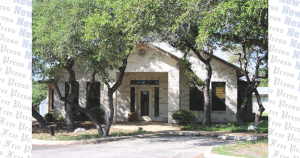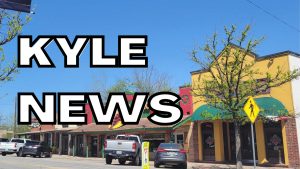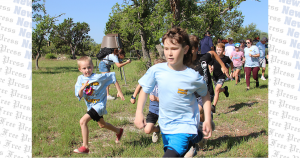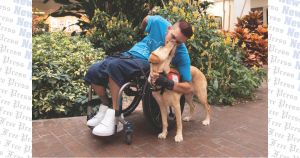DOWN THE RABBIT HOLE
“If there’s no meaning in it,” said the King, “that saves a world of trouble, you know, as we needn’t try to find any.” —Chapter 12, Alice’s Evidence
———
By all accounts, the impetus for Proposition F was the slaying of George Floyd.
“The reason this got on the ballot was lack of trust in policing and the people spoke,” said Kyle City Council Member Bear Heiser at a special meeting on Saturday, April 1 regarding the measure.
This is what I’ve heard from several council members as they have attempted to interpret the ballot measure for the second time since November of 2020.
It’s been interesting to follow along with the conversations — and sometimes, hot debates — about what 76.94% of voters, or 12,088 citizens, intended when they said yes to the following: “authorize city council to review the city’s police department’s procedures and policies; require the police chief to submit an annual report about the police department’s operations; and establish a committee to review the department’s policies, strategies and resources.”
In previous one-on-one conversations, Kyle Mayor Travis Mitchell told me he would like to see the committee be more data driven. Council member Yvonne Flores-Cale said she wanted it to include a more community policing approach after she viewed the results of a survey conducted in 2021 that reported citizens want more community engagement with the police department. And there have been various arguments for everything in between.
But do the citizens of Kyle really want more meet and greets with KPD officers? We’ll never know, as this survey from two years ago that was intended to get to the root of Proposition F garnered only a whopping 20 responses — a laughable sample size.
So, what do the citizens of Kyle really want in their police oversight committee?
“Who knows what they intended back in 2020. There were a lot of things going on then,” Mitchell said at the special meeting on April 1.
That’s the first issue with creating a committee to oversee the Kyle Police Department nearly 900 days after the fact. Of course, it’s difficult now to know what voters were thinking in 2020; however, I’m sure our city leaders then had a better understanding of what the people intended when they voted for Prop F. So, why didn’t they address this sooner? What were they waiting for? Instead of coming together (an issue that seems to pervade Kyle City Council), they passed the buck for three years and counting.
The second issue is one of substance.
“All these things [police-involved incidents] drive a narrative, but what we’re focusing on is none of that,” Mitchell said. “So, when they voted 75% for oversight, what they weren’t saying, based on how I’m reading it, is that they think KPD is untrustworthy and we need to change how they operate. We want to make sure our police department operates to such a degree we can ensure that these bad things happening in other cities don’t come to Kyle.”
That’s the thing though. These bad things do happen in Kyle. They already have — just with another agency.
I was sitting on my mother’s patio in Beaumont when I got a Slack notification about a shooting at Ascension Seton Hays Hospital in Kyle. I spent that night calling and calling and calling DPS, furiously trying to get a comment on the shooting of Joshua Wright at the hands of HCSO corrections officer. The first day I was physically present in my role as editor at the Hays Free Press, I attended a press conference held by the lawyers and the family of Wright.
I remember how his daughter held her father’s portrait; her shoulders slouched as the weight of the frame pulled her whole body down. So much so that she leaned on a family member, as if to unburden herself of the weighted grief.
Recently, HCSO corrections officer Isaiah Garcia was indicted on a charge of deadly conduct. I don’t think there’s a question of whether he shot Joshua Wright. It’s just a question of intent. And I truly believe in innocence until proven guilty. I can’t say whether the killing of Wright was justified nor can I blindly trust that the officer didn’t shoot an unarmed Black man who was shackled by the feet, shuffling away. I haven’t seen the footage HCSO and the Rangers have refused to release.
Please don’t get me wrong, I also generally like cops. I genuinely respect and trust individual cops I’ve had the pleasure of working with and meeting. They’re often my best sources, even after leaving my crime and court beat behind to become an editor. I can honestly say that I’ve never met a cop I didn’t like, but that is my privilege showing (and another opinion piece for another time).
These types of opinions probably wouldn’t make me a good candidate for the committee. And that’s kind of the point — we all have our personal opinions about law enforcement and what oversight truly means.
So, as I sat there in that special city council meeting, I wondered what I would like a police oversight committee to look like. What would be its scope?
And the answer is, I’m not sure. But I do know what I don’t want. I don’t want officer meet and greets or community safety briefings about “how to keep your home safe while you’re on vacation,” as proposed by one council member. I also don’t want data about spending and overtime. And yet, these are the things the leaders of our city say they are looking for in the very same breath as the word “oversight.”
In fact, part of the proposed committee’s tertiary duties will be to make recommendations based on data compiled in its annual report — the primary task of the panel; however, at no point shall it involve use of force policy or any meaningful type of oversight. There may be data regarding use of force included in the report, but this “independent” task force will not be allowed to make any recommendations regarding that data.
I didn’t vote for Prop F in 2020. Hell, I couldn’t show you where Kyle was on a map three years ago. But I recognize the importance of context.
It’s, “Say his name.” It’s, “I can’t breathe.” It’s, “No justice, no peace.” It’s, “Hands up, don’t shoot.”
No, I can’t read people’s minds. It is, indeed, difficult to interpret the scope of the intention behind Prop F. But given the atmosphere at the time the measure was voted on, I can’t help but feel that the committee it created was intended to have some teeth.
So, after all the conversations and debates, it’s become clear, at least to me, that this police “oversight” committee will be all bark and no bite. So, when that “bad apple” does emerge in Kyle, this measure voted on for the people, by the people will have little relevance in matter.
And you know what they say about that one “bad apple,” don’t you?
Frels is the editor of the Hays Free Press and News-Dispatch. Story ideas and feedback can be sent to natalie@haysfreepress.com.










